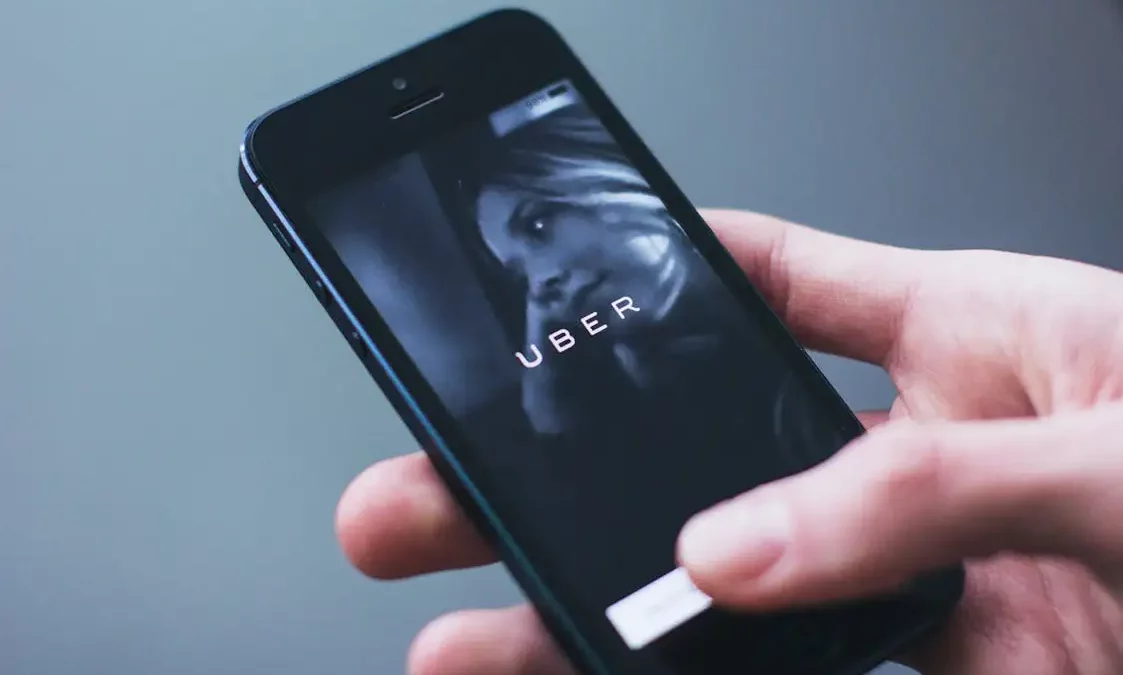Do Uber Drivers Get Tax Refunds? Essential Tax Tips for Gig Drivers

How Does Cloud Bookkeeping Simplify Financial Management for Small Businesses?
December 9, 2024
How Much Does a Tax Strategist Cost? Pricing Explained
December 20, 2024Do Uber Drivers Get Tax Refunds? Essential Tax Tips for Gig Drivers
Driving for Uber or delivering with Uber Eats can be a flexible and rewarding way to earn money. But when tax season rolls around, many drivers ask the same question: do Uber drivers get tax refunds? The answer isn’t always straightforward—it depends on your income, expenses, and how well you manage your tax situation.
For gig workers, understanding tax obligations is crucial to avoid surprises and even unlock savings. In this blog, we’ll break down everything you need to know about taxes for Uber and Uber Eats drivers, including tips for maximizing deductions and reducing your tax burden.
Understanding Tax Obligations for Uber and Eats Drivers
If you’re driving for Uber or delivering meals for Uber Eats, you’re considered self-employed in the eyes of the IRS. This means you don’t have taxes automatically withheld from your income like a traditional employee would.
Here’s what this means for your taxes:
- Form 1099 vs. W-2: Uber and Uber Eats classify drivers as independent contractors, which means you’ll receive a Form 1099 rather than a W-2. This form reports your income to the IRS and is essential for filing your taxes.
- Estimated Tax Payments: As a self-employed worker, you’re responsible for making quarterly estimated tax payments throughout the year if you expect to owe more than $1,000 in taxes.
Can Uber Drivers Get a Tax Refund?
Many drivers want to know, do Uber drivers get tax refunds? The answer isn’t a simple yes or no—it depends on your individual tax situation. A refund occurs when the taxes you’ve paid or credits you qualify for exceed your tax liability. For Uber and Uber Eats drivers, whether or not you get a refund hinges on how much you earn, how much you deduct, and whether you’re eligible for certain tax credits.
Here’s a deeper dive into how refunds work for gig drivers:
1. Overpayment of Taxes
Unlike traditional employees, Uber drivers don’t have taxes withheld from their earnings automatically. However, if you’ve made estimated tax payments throughout the year and your deductible expenses significantly reduce your taxable income, you might have overpaid—resulting in a refund.
2. Deductions That Lower Taxable Income
Gig drivers often have substantial deductible expenses, such as mileage, vehicle maintenance, and even snacks for passengers. These deductions reduce your taxable income, which can lower your overall tax liability or even zero it out. If this reduction exceeds what you owe, a refund is possible.
3. Eligibility for Tax Credits
Refundable tax credits can make a significant difference for gig workers:
- Earned Income Tax Credit (EITC): If your income falls below a certain threshold, you may qualify for this credit, which can result in a refund even if you owe little to no tax.
- Child Tax Credit: If you have children, this credit can provide a substantial boost to your refund.
- American Opportunity Credit: For drivers who are also students, this credit for education expenses might apply.
4. Special Cases for Low-Income Drivers:
Drivers with lower incomes but high expenses often find themselves in a position to receive refunds. For instance, if your total deductions exceed your income, your taxable income may drop to zero, and any refundable credits can generate a refund.
5. Do Uber Eats Drivers Get Tax Refunds?
The same principles apply to Uber Eats drivers. In fact, food delivery drivers may have even higher expenses due to frequent stops, extra wear and tear on their vehicles, and delivery-specific gear. By carefully tracking these expenses, Uber Eats drivers can maximize their deductions and increase their chances of a refund.
Maximize Your Deductions: Uber Driver-Specific Write-Offs
One of the best ways to reduce your taxable income—and possibly qualify for a refund—is by taking full advantage of deductions. As an Uber or Uber Eats driver, there are plenty of write-offs you can claim:
Mileage vs. Actual Expenses
You can choose between deducting your mileage (at the IRS standard rate) or the actual expenses of operating your vehicle. The mileage method is simpler, while the actual expense method may yield larger deductions if your vehicle costs are high.
Key Deductible Expenses
- Gas, oil changes, and vehicle maintenance.
- Insurance premiums for your car.
- Depreciation or lease payments.
- Phone and internet costs (portion used for work).
- Passenger or delivery-related supplies (e.g., snacks, water, delivery bags).
Record-Keeping Tools
Apps like Stride, Everlance, and MileIQ can help you track mileage and expenses, making tax filing easier and more accurate.
Pro Tip: Accurate records can make or break your deductions. Keep receipts, maintain a mileage log, and use tracking tools to ensure you don’t miss out on potential savings.
Tax Tips for Food Delivery Drivers (Uber Eats, DoorDash, etc.)
For food delivery drivers, the nature of your work means additional wear and tear on your vehicle, frequent stops, and extra expenses. Here’s how to make the most of your deductions:
- Focus on Vehicle Costs: Delivery drivers often drive in urban areas with constant stop-and-go traffic, which increases fuel and maintenance expenses. These costs can be deducted to lower your taxable income.
- Delivery-Specific Supplies: Items like insulated delivery bags, phone mounts, and even bike maintenance (if you deliver by bike) can be written off.
- Handling Cash Tips: Don’t forget to report all income, including cash tips. While it might be tempting to skip reporting them, doing so could lead to penalties if audited.
By understanding these unique expenses, you can answer the question do Uber Eats drivers get tax refunds confidently—your eligibility largely depends on tracking these deductions carefully.
Common Pitfalls and How to Avoid Them
1. Failing to Make Quarterly Estimated Payments
Gig workers are responsible for paying taxes on their income throughout the year, not just at tax time. If you earn more than $400 annually as a self-employed individual, you’re required to make quarterly estimated tax payments. Missing these payments can result in underpayment penalties and accrued interest.
Solution: Calculate your estimated taxes each quarter and set aside 20-30% of your earnings for federal and state taxes. Apps like QuickBooks Self-Employed or TaxAct can simplify this process.
2. Underreporting Income
Uber and Uber Eats send Form 1099 to both you and the IRS, reporting all the income you’ve earned through their platform. If you fail to report your full income—including tips—you risk penalties or triggering an audit.
Solution: Keep detailed records of your earnings, including tips, and reconcile them with your Form 1099. Even if you don’t receive a 1099 (e.g., if you earned less than $600), you’re still required to report that income.
3. Overestimating Mileage or Expenses
Mileage is often the largest deduction for gig workers, but overestimating or guessing your mileage can be risky. The IRS requires accurate records, and unsupported claims can be disallowed during an audit. Similarly, overreporting expenses like phone usage or maintenance without documentation can backfire.
Solution: Use a mileage-tracking app, such as MileIQ or Everlance, to log your trips in real-time. For other expenses, save receipts and clearly separate personal and business costs.
4. Neglecting to Separate Business and Personal Finances
Mixing personal and business expenses is a common issue for gig workers. This not only complicates record-keeping but can also lead to missed deductions or IRS scrutiny.
Solution: Open a separate bank account or credit card specifically for business-related expenses. This makes it easier to track your spending and prove deductible expenses if needed.
5. Forgetting About Self-Employment Tax
As a self-employed worker, you’re responsible for both the employee and employer portions of Social Security and Medicare taxes, known as self-employment tax. This is in addition to federal and state income taxes, which can catch many drivers off guard.
Solution: Factor self-employment tax (15.3% of your net earnings) into your quarterly payments. Consider using a tax calculator or consulting a professional to ensure accurate calculations.
6. Misclassifying Deductible Expenses
Not all expenses are fully deductible, and some are only partially deductible. For example, if you use your personal phone for work, you can only deduct the portion of the phone bill related to business use. Similarly, meals and entertainment are subject to specific IRS rules.
Solution: Learn the rules for common deductions, or work with a tax professional who understands the gig economy. Err on the side of caution and only claim deductions you can justify with records.
7. Failing to Seek Professional Help When Needed
Self-employed taxes can be complex, and gig workers often miss out on valuable deductions or credits because they don’t fully understand the tax code.
Solution: Consider hiring a tax preparer or consulting with a CPA who specializes in gig economy workers. They can help identify deductions you may not have known about and ensure you’re compliant with IRS rules.
Planning for Next Year: Tax-Prep Strategies for Gig Drivers
To stay ahead of tax season, implement these strategies for better financial management:
- Set Up a Tax Savings Plan: Save a portion of your earnings (typically 20-30%) to cover taxes. Automating transfers into a savings account can make this easier.
- Consider Business Entity Options: Depending on your income level, forming an LLC or S-Corp might offer additional tax benefits. Consult with a professional to see if this is right for you.
- Stay Informed: Tax laws change frequently, especially for gig workers. Keep up-to-date with IRS updates to ensure you’re aware of new deductions or requirements.
Final Thoughts
So, do Uber drivers get tax refunds? The answer lies in how well you manage your income, expenses, and tax obligations. For Uber and Uber Eats drivers, understanding deductions, avoiding common pitfalls, and planning ahead are the keys to reducing your tax burden and possibly getting a refund.
Don’t let tax season steer you off course. Take control of your finances, keep detailed records, and consult with a tax professional if needed. With the right strategy, you can maximize your earnings and minimize your tax stress—so you can focus on what you do best: hitting the road!
Shoaib Jamil
Muhammad Shoaib is a Manager of Product Development at Monily, where he leads a team of bookkeepers and financial controllers, overseeing tax returns and client management. With experience in accounting software like SAP, Oracle, and QuickBooks, he has played a vital role in implementing new ERP systems and bettering accounting processes for many different brands. Before Monily, he held key roles at Arthur Lawrence Pakistan and Samsung, where he worked on internal controls and improved financial reporting. Muhammad is a CPA and holds an M.Com from the University of the Punjab.




